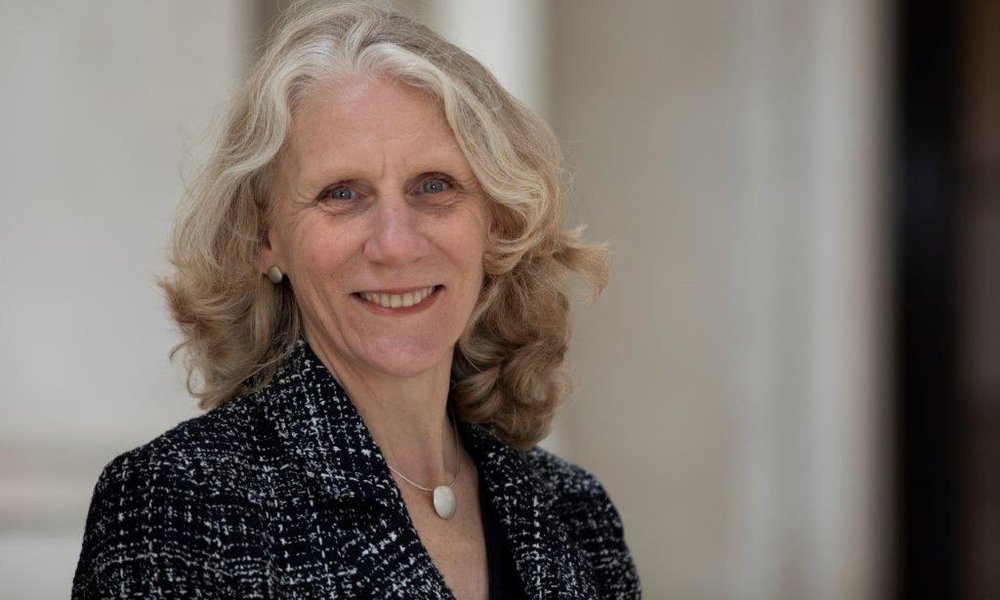News
Eight new Global Professorships announced by the British Academy for 2023-2024
11 Apr 2024

The British Academy has announced the recipients of eight Global Professorships awards.
The Global Professorships scheme aims to foster collaboration between leading international researchers and UK-based institutions on new and cutting-edge research projects.
The latest cohort of Global Professors will undertake research on a range of diverse issues, including the development of novel food system models to benefit society and the exploration of West African communities' history through museum collections.
The 2023-24 Global Professorships awardees are:
Please note: Awards are arranged alphabetically by surname of the grant recipient. The institution is that given at the time of application.
Professor Olutayo Adesina
GP23\100046
The Town and Gown Interface: Ibadan and the Decolonisation of Social Knowledge in the 20th Century
University of Manchester
£879,117
In the 1950s, the University College Ibadan (UCI) became the epicentre of a historiographical revolution that directly shaped the evolution and growth of the Nigerian nation-state, a movement that became an early instance of the decolonisation of knowledge. How did the academic, social, intellectual, and political beacon at UCI address the concerns and realities of ordinary people? To what extent was the work of academic historians and social scientists at UCI shaped by indigenous, vernacular epistemologies? The city of Ibadan had its own, rich and distinctive, cultural and intellectual identity. This project studies for the first time the interplay of nationalist historiography, academic social science, and vernacular knowledge as mutually constitutive social epistemologies. The project combines a close study of key works in history and related disciplines such as sociology, anthropology, ethnomusicology, language and literature with extensive interviews and fieldwork in the city of Ibadan, Southwest Nigeria.
Professor Tetyana Antsupova
GP23\100072
The Dynamics of the Judiciary in Ukraine in the Context of the Rule of Law and the EU Accession Aspirations
BIICL (British Institute of International & Comparative Law)
£895,422.09
The proposed project will provide a first of its kind critical examination of Ukraine’s judicial system from a historical (from 1991 – to date) and legal perspective. It will examine key features including judicial reforms, independence of the judiciary with the rule of law framework, anti-corruption measures, issues of efficiency and accountability as well as harmonisation with Council of Europe and EU Standards. No research of this nature or scope has ever been undertaken about the Ukrainian judicial system making the comprehensive and comparative nature of this study both innovative and prescient. The research will generate insights and recommendations that can contribute to judicial reform efforts in Ukraine and alignment with EU and the CoE standards. Project outputs will provide a comprehensive and balanced picture of the judiciary in Ukraine, thus becoming an essential source for academics, practitioners and decision-makers in Ukraine, the UK and the EU and beyond.
Professor Paul Behrens
GP23\100134
Rapid food system transformations in a rapidly changing world
University of Oxford
£897,568.32
Food system emissions alone are enough to push the planet past 1.5°C or potentially 2°C of warming this century (even with a decarbonised energy system). Food systems are also the largest contributor to deforestation, water use, biodiversity loss, antimicrobial resistance, and other crises. Simultaneously, food production is threatened by environmental climate impacts emerging earlier than previously anticipated.
There is an urgent need for a Great Food Transformation to reduce environmental harm and increase food system resilience. While there has been research on the environmental opportunities of a Great Food Transformation, much less research has been conducted on its social impacts that impact both consumers and producers. Here we will develop food system models that connect producers and consumers through trade, explore the social outcomes of a Great Food Transformation—from subsidy and land management shifts to increasing food security, and investigate food system resilience in a rapidly changing world.
Professor Sandrine Berges
GP23\100202
Finding Diversity in Enlightenment's Philosophy's Attitude to Abolitionism
University of York
£868,767.63
This new project aims to bring to light the way in which women, Black individuals and members of dissenting religious sects participated in the intellectual effort of late enlightenment abolitionism. These authors rarely feature in discussions of abolitionist movements of that period, even though some were prominently involved in the movement.
The benefits of an intersectional approach to feminism and anti-racism are well documented now. The abolitionist movements of the 18th century were male and female, Black and white, and had a variety of religious views. It is important to understand the extent to which agents who were not white males made a difference. Philosophical historians of the relevant period have greatly contributed to the erasure of those agents, and research is needed to bring them back in order to provide a more diverse and a more accurate history of this important philosophical moment.
Professor Karine Chemla
GP23\100312
Rethinking the History of Mathematical Symbolism
University of Edinburgh
£899,337.00
The historiography of mathematical symbolism generally considers this type of mathematical language to be an innovation introduced in Europe at the end of the 16th century. My project aims to explore the hypothesis that what we have at the time is more precisely a new type of mathematical symbolism, and that this new type was drawing on earlier types of symbolism—in particular, on some properties of decimal place-value notations and on mathematical practices related to them.
In other words, I suggest rethinking what we mean by “symbolism”. I further suggest examining in what respects decimal place-value notations should be considered as belonging to the history of mathematical symbolism. Finally, I want to explore the hypothesis that mathematical symbolism has a much more global history than has hitherto been assumed. In addition, I intend to examine the contexts in which past historiographies of mathematical symbolism have been written and re-written.
Professor Saloumeh Gholami
GP23\100049
Persisting Through Change: A Study of Oral Literature and Cultural Interaction in the Zoroastrian Community
University of Cambridge
£875,667.20
This project examines the oral traditions of the Zoroastrians as they have survived in the now critically endangered Zoroastrian Dari (Behdini) language. Using new primary source material and two interactive strategies, convergence and divergence, it examines how oral literature is created, transmitted, and interpreted in the Zoroastrian community and how it has succumbed, or resisted, to change while interacting with the Islamic majority culture. Documenting and analysing these oral traditions in a multidisciplinary approach, the goal is to reveal the cultural dynamics between language, literature, and society of a distinct minority in the context of the majority culture.
Professor Ayelet Landau
GP23\100178
Do Rhythms Coordinate Sensation and Action?
University College London
£899,999.97
Rhythms are a ubiquitous phenomenon in cognition and the brain. Many of our motor behaviours unfold rhythmically, including our eyes and body movements. The ubiquity of rhythms extends to our sensory system, too. Although we have the impression that our perceptions are continuous, I have previously demonstrated that this is not the case. Instead, our perceptions sample the environment in chunks: discretely and rhythmically, analogous to the images in a filmstrip. Both motor, and perceptual rhythms are grounded in rhythmic brain activity. The goal of this proposal is to study the functional coordination of sensing and acting, and to assess whether the rhythms governing each might be two sides of the same coin, reflecting a shared coordinating mechanism of movement and sensing. Identifying rhythms that structure the coordination of moving and sensing will open horizons for understanding mental and physical disability.
Professor Abubakar Sule Sani
GP23\100008
Looking Forward, Looking Back: Past and Present West African Communities Revealed through Museum Collections
University of East Anglia
£892,037.31
My vision for this Global Professorship is an innovative programme of research that will invigorate academic collaborations between the UK and Nigeria/West Africa and become a model for future engagement based on trust, co-production of knowledge and intellectual integrity. I aim to achieve this by combining archaeology, museum practice and stakeholder engagement to study large and under-researched collections from key Nigerian sites, drawing on archaeological, ethnographic and archival data held in British and Nigerian museums. This research will bring new understandings of African history, and of UK/Nigerian research histories, through academic outputs, online resources, exhibitions and outreach in the UK and Nigeria. Building on my experience as a field archaeologist, educator and collections researcher, and deploying extensive networks, the project will have a transformative impact on my research and that of the University of East Anglia, while helping remedy current post-colonial issues concerning the role and value of museum collections.
The awards listed are those for the 2023 Global Professorships Awards. Previous award announcements can be found on the Global Professorships past awards page.
Contact the press office
For further information contact the Press Office on [email protected] / 07500 010 432.

